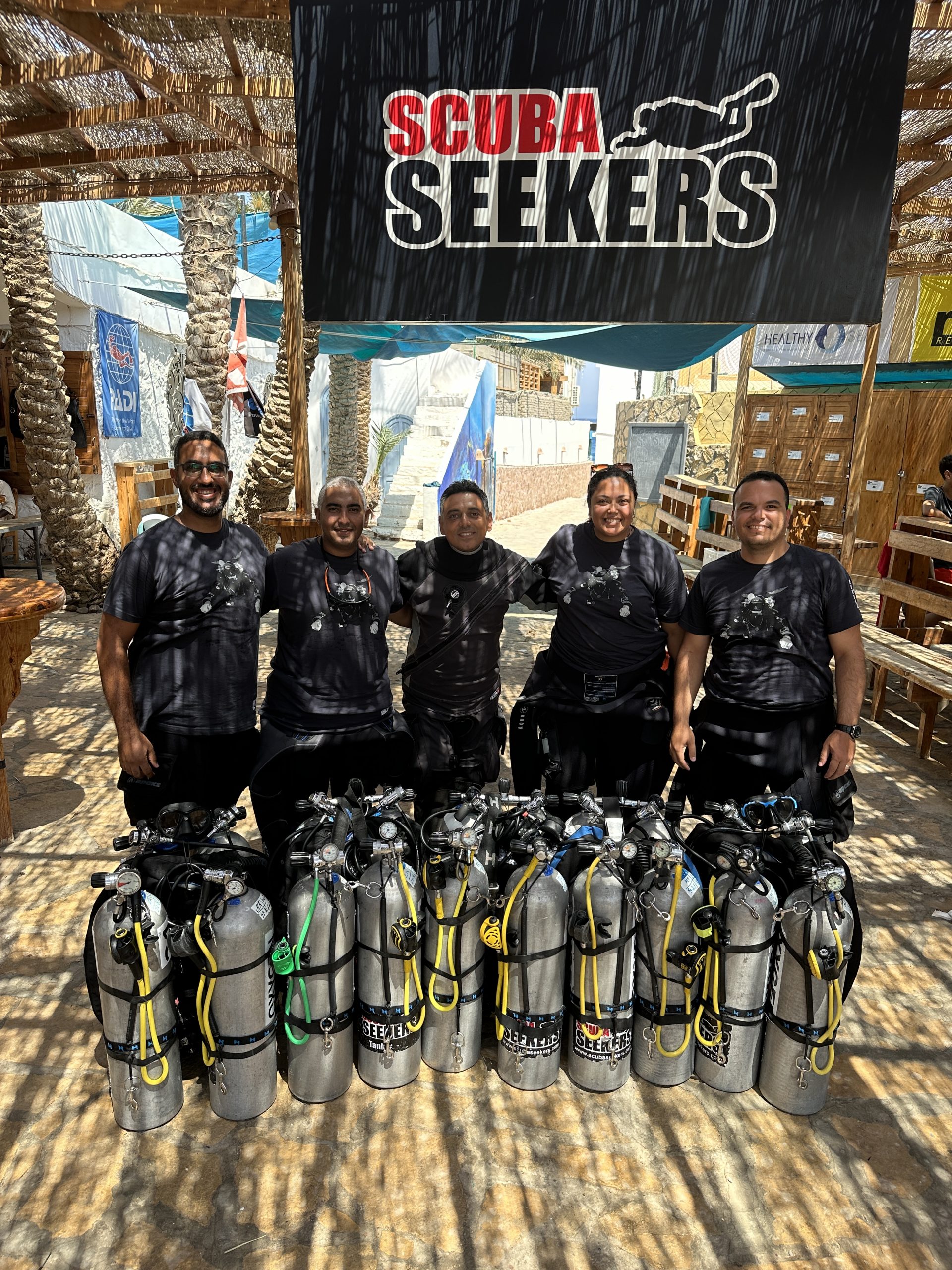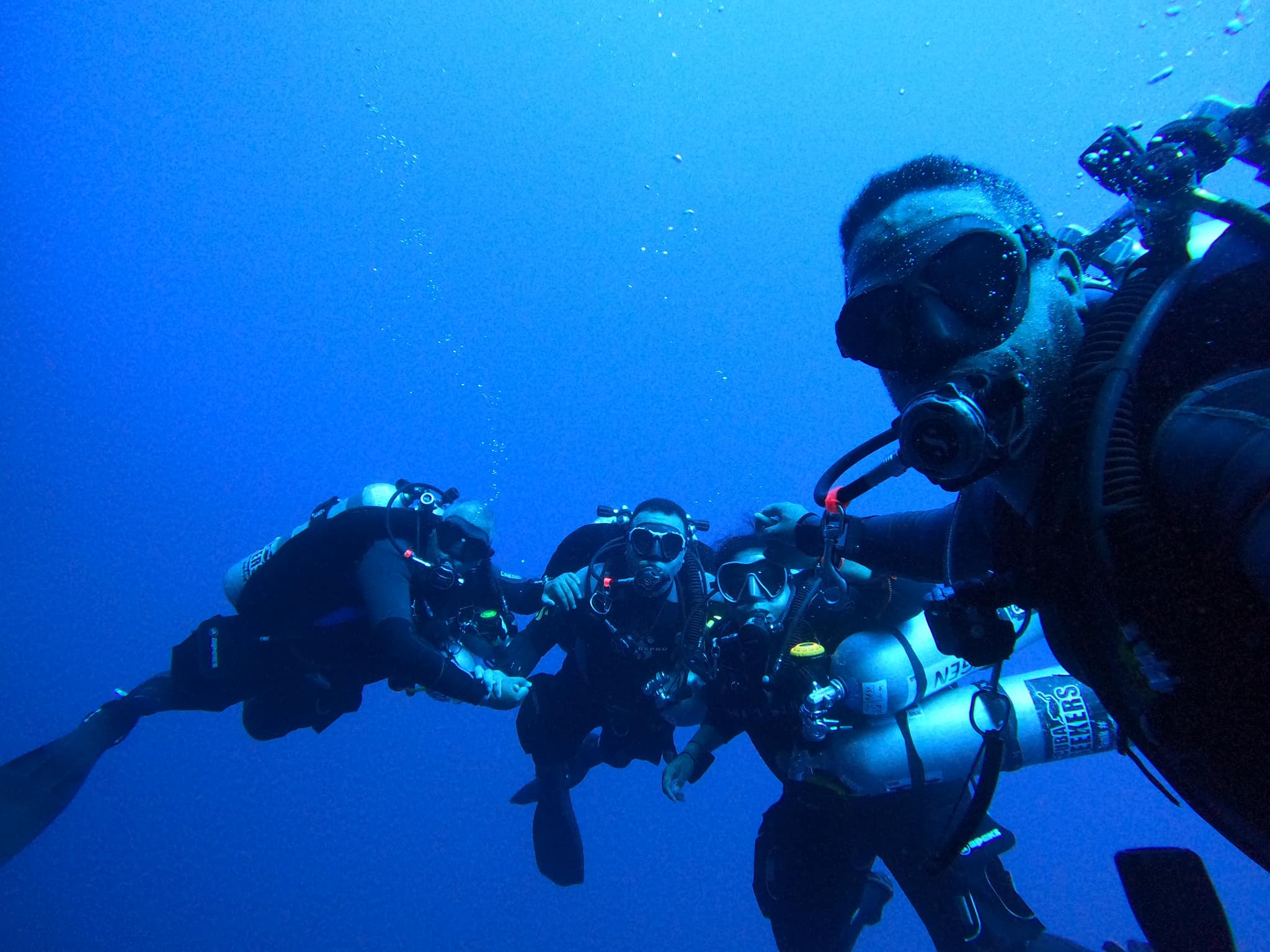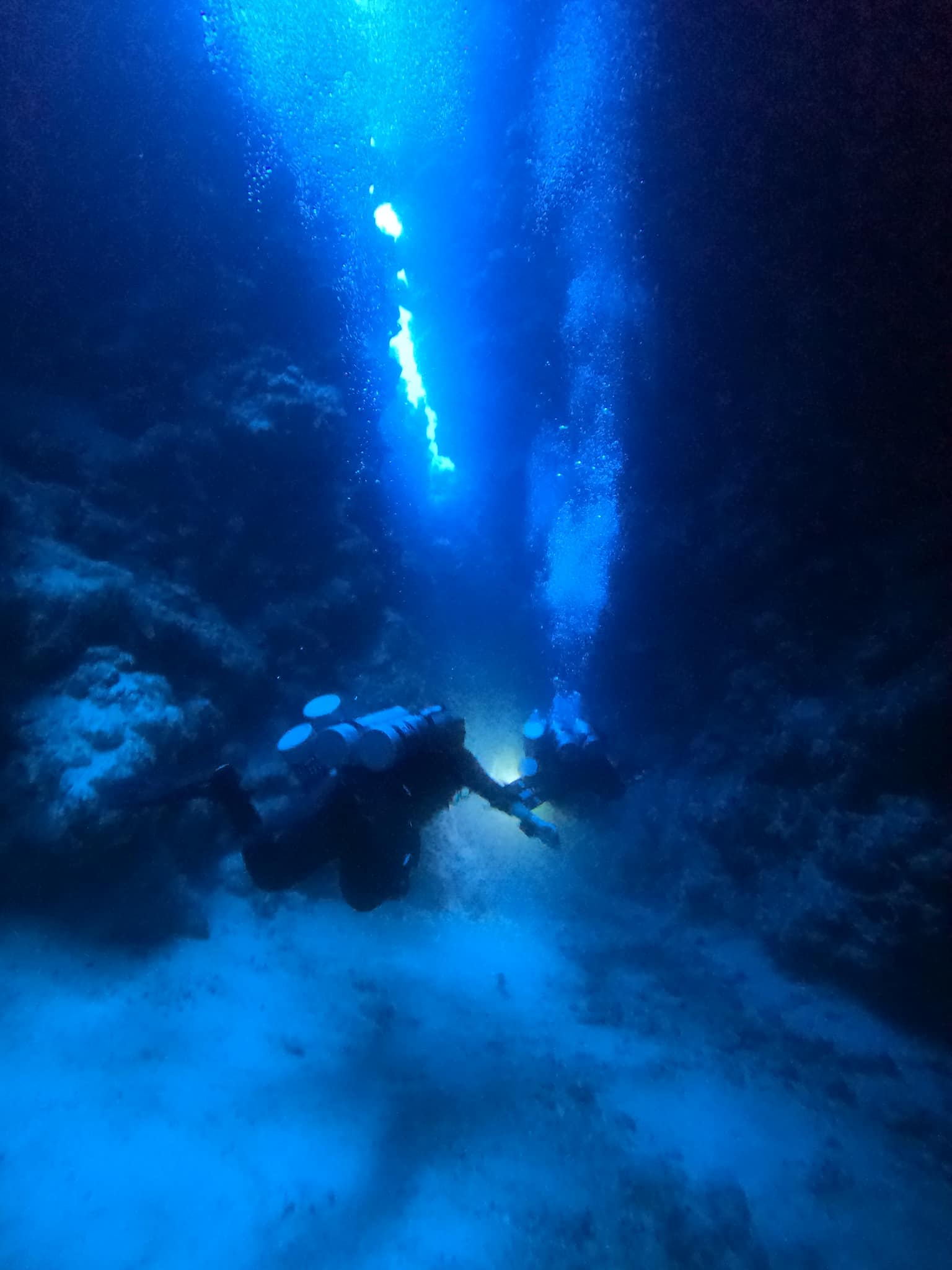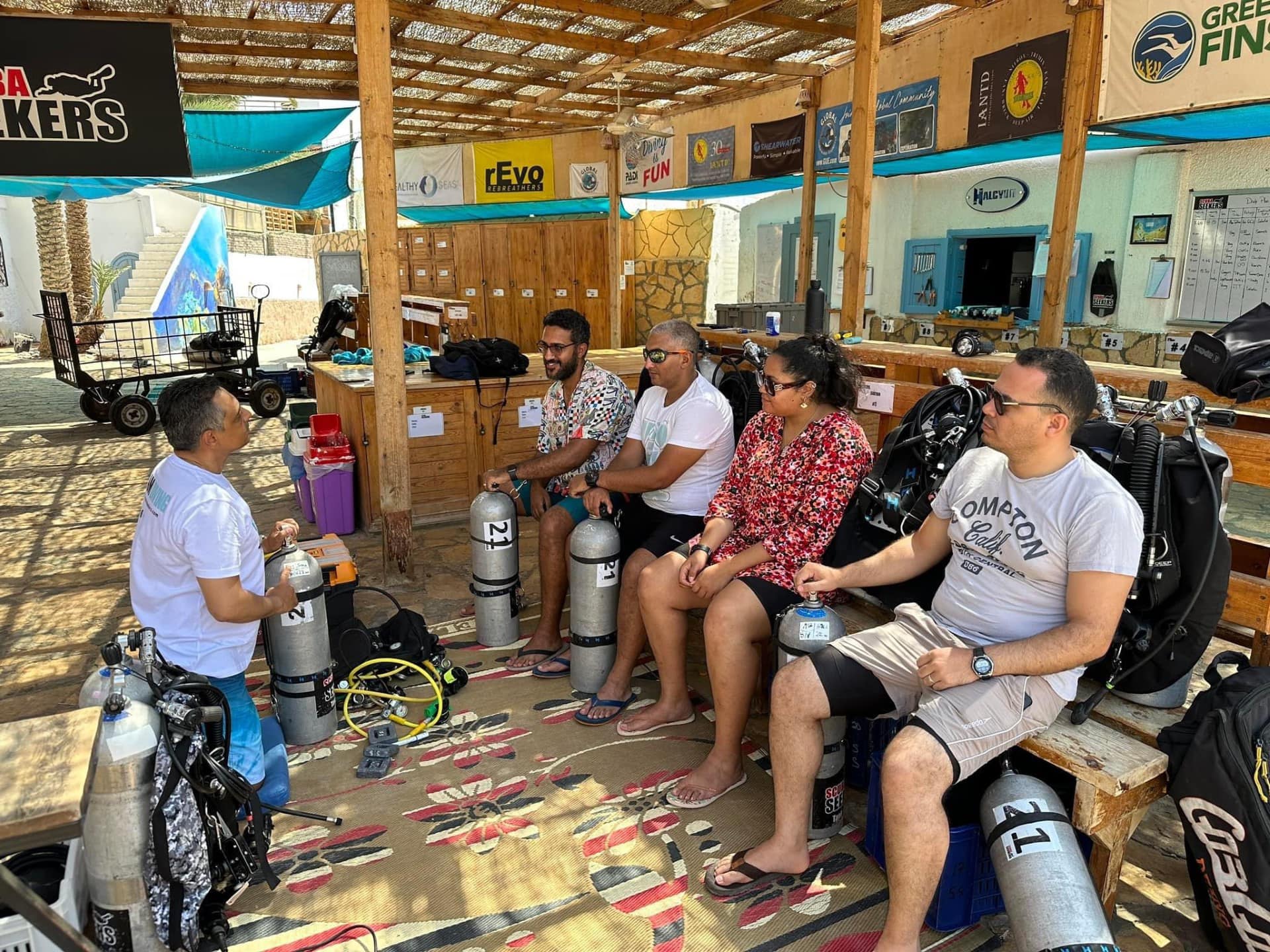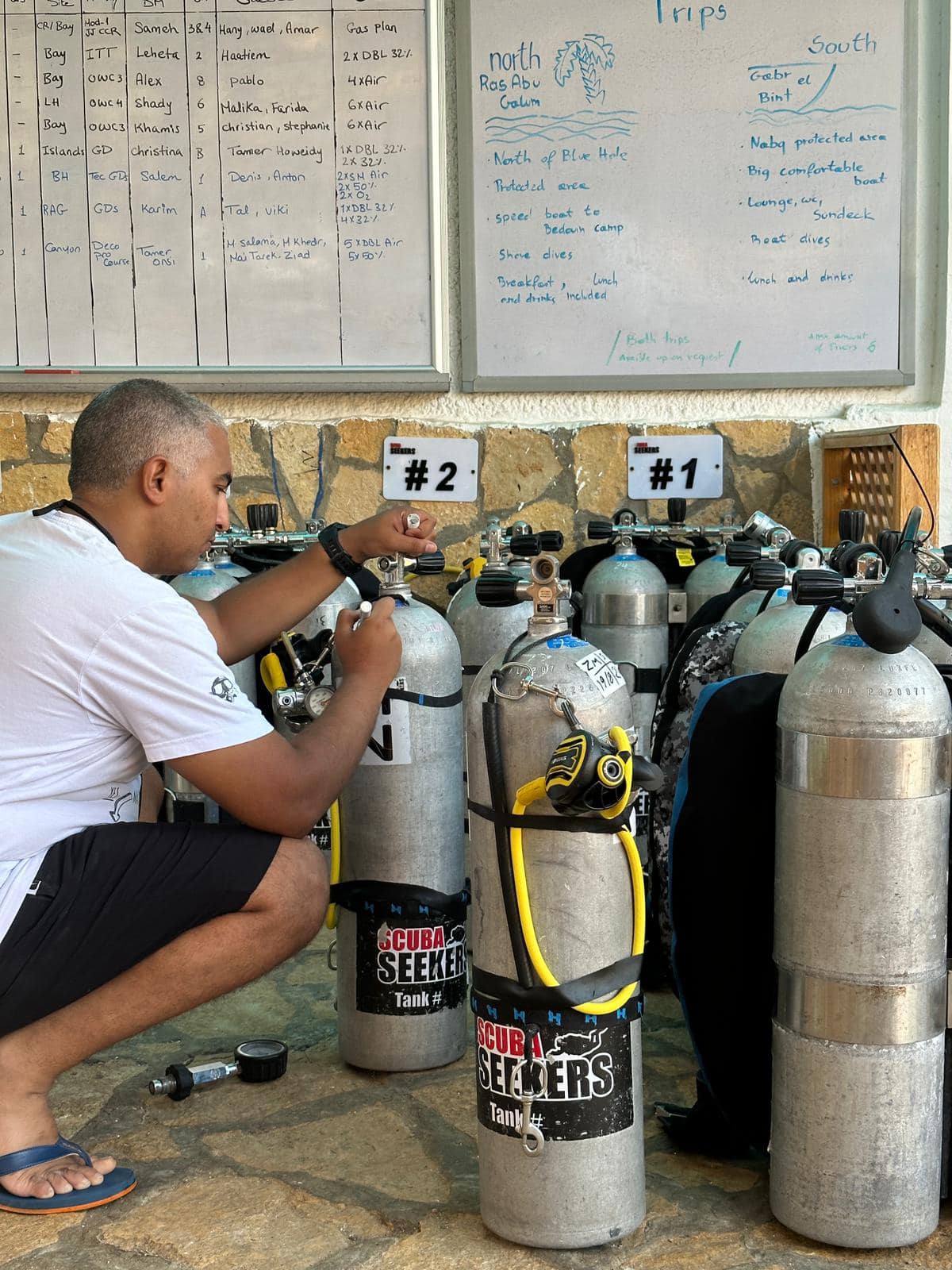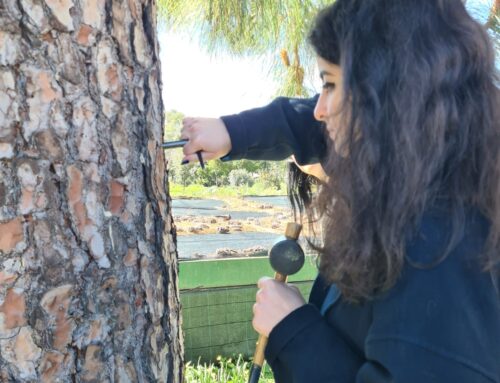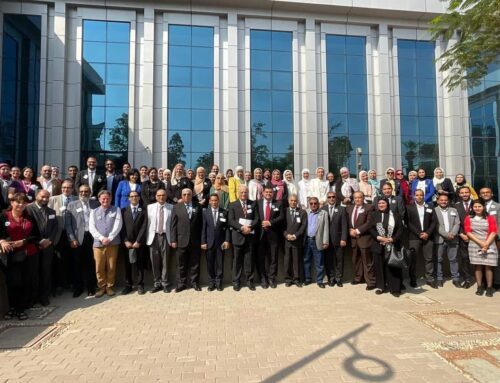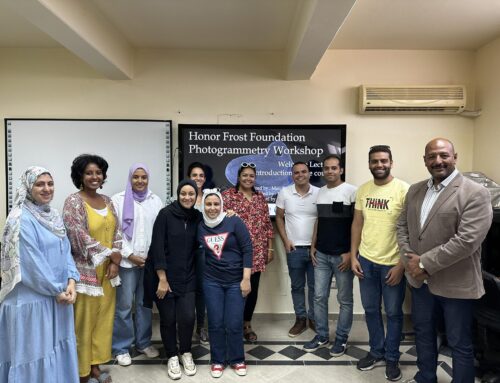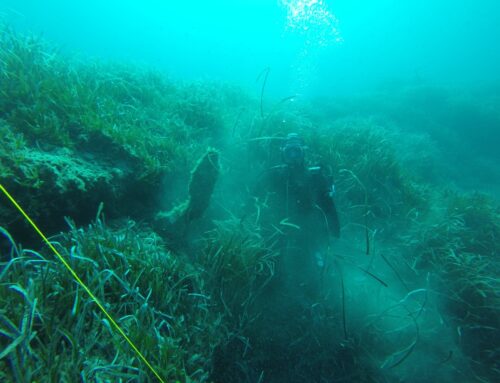The course included a number of advanced SCUBA Technical diving courses, starting with online theoretical classes from 09/08/2023, then on-site classes and practical training in Dahab from 15/08/2023 to 25/08/2023, Red Sea, Egypt. All courses were given by TDI Instructor Tamer Onsi, and under the Technical Diving International qualifications procedures.
Courses included the following:
1. Intro To Tech:
The TDI Intro to Tech course introduces students to the world of technical diving. This course is designed as an introductory course to the TDI Advanced Nitrox course and the TDI Decompression Procedures Course
2. Nitrox and Advanced Nitrox Diver:
Qualifies divers to use enriched air nitrox from EAN 21 through EAN 100 % within your current certification level to a maximum depth of 40 meters during dives that do not require staged decompression.
3. Decompression Procedures:
Preparation for planned staged decompression diving. With a maximum operating depth of 45 meters, it is the first step beyond the normal sport diving limits.
4. Extended range Diver:
Provides the training and experience necessary, including proper techniques, equipment requirements, and hazards of deep air diving, to competently utilize air for dives up to 55 meters that require staged decompression, using nitrox mixtures or oxygen during decompression.
Course participants had the following to say about the impact this training has had on their careers and further research.
Ziad M Morsy
Since 2014, I have always felt that the Recreational SCUBA diving skills obtained from CMAS were inadequate when working on archaeological projects. The need to work on deeper sites (30+ meters) safely and efficiently needs special set of skills and equipment, that the normal recreational diving is lacking. During the same year, I wanted to join the Mazotos shipwreck project in Cyprus. However, the DSO of the project only allowed technical divers to join the mission, as the wreck is on 40 meters of depth, and they use Oxygen Enriched deco stops.
After the two-week course in the Red Sea, I have obtained enough theoretical and practical knowledge to safely plan and execute diving operations on depths greater than 30 meters. This will help in planning for future projects in the Red Sea, making diving more safe. Skills obtained during the course also will help in the safe diving and execution of operations underwater in the Nile, where the team trained will be the core team working underwater in the Nile during the next three years. Finally, after the training, the team can now join the Mazotos Shipwreck project in Cyprus as active team members, which will give us more practical experience and advance our skills underwater.
Mohamed Khedr
Through these courses, I enhanced my previous diving skills in addition to gaining new basic skills that I couldn’t learn before. On the other hand, I gained the skills that allowed me to dive and extend the diving limit up to 55m using only air. Through these new skills, I will be able to join another type of underwater archaeological project such as Mazotos in Cyprus, also it will reflect on the deep water archaeological projects in Egypt.
Mohamed Salama
As the fund provided the financial support needed for specialized training programs, including certifications like Advanced Nitrox Diver and Decompression Procedures. These qualifications have boosted my confidence and will let me to participate in complex underwater archaeological missions, notably on sites like the Sadana shipwreck, and etc.
Additionally, the bursary opened doors to collaborations with experts in the field, facilitating networking opportunities that continue to benefit my career. Working alongside these experts has not only enhanced my skills but also contributed to the broader field of underwater archaeology.

